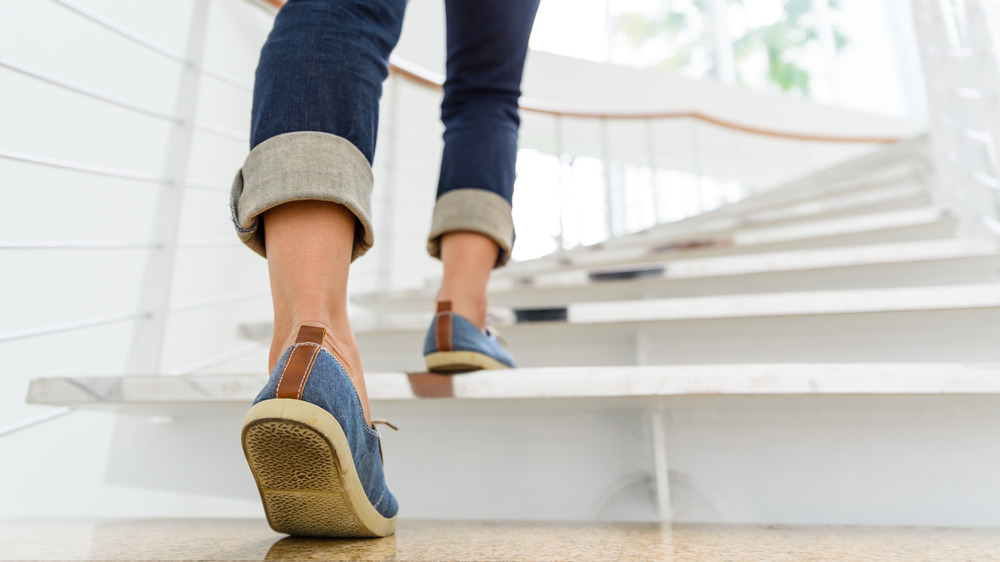Here's An Easy Way To Check On Your Heart Health
Wondering how healthy your heart is? Try taking the stairs. If you can't climb four flights (about 60 steps) in less than 1 1/2 minutes, your cardiac health isn't as robust as it could be, according to a recent study from cardiologists in Spain (via Healthline).
While this isn't a substitute for a comprehensive cardiac evaluation, "the ability to climb stairs can be used as a crude way to assess one's physical function that may be predictive of overall heart health," said Dr. Renee Bullock-Palmer, a cardiologist and director of noninvasive cardiac imaging at the Deborah Heart and Lung Center in Browns Mills, New Jersey.
The study involved 165 participants who first walked or ran on a treadmill until exhaustion, Healthline said; researchers measured their exercise capacity as metabolic equivalents (METs), or the amount of oxygen consumed while at rest. To compare the results of the lab treadmill tests with regular exercise, researchers asked the participants after a rest period to climb four flights of stairs. The participants didn't run but climbed at a swift pace. Researchers then measured their METs again.
The researchers found that images taken of the participants' heart function during the tests showed that more than half — 58 percent — of those who took more than one and a half minutes to climb the stairs had abnormal heart function. By comparison, only 32 percent of those who scaled the stairs in less than a minute had abnormal heart function.
Stairs too intense? Check how you feel after walking two city blocks
The study was presented at a meeting of the European Society of Cardiology. Dr. Jesús Peteiro, a study author and a cardiologist at University Hospital a Coruña, said that all the participants experienced coronary heart disease symptoms such as shortness of breath and chest pain during exercise. "The idea was to find a simple and inexpensive method of assessing heart health," he told Healthline. "This can help physicians triage patients for more extensive examinations."
Dr. Nicole Harkin, founder of the online heart health practice Whole Heart Cardiology, said that doctors often assess heart health before surgery by checking a person's ability to climb stairs. "It's an exercise that gets your heart rate up relatively quickly," she said.
While stairs can be an easy way to gauge how healthy your heart is, several factors can affect the results, such as the type of stairs, climbing speed, and a person's age and mobility, said Dr. Oyere K. Onuma, a cardiologist at Yale School of Medicine in Boston, Massachusetts. In addition, older adults and people with diabetes also may find stairs painful on knee joints and tricky to navigate, other health professionals say.
Fortunately, there are other everyday ways to assess your heart health, such as walking two city blocks or carrying grocery bags to the car. If you notice it takes longer for your heart rate to decrease after exercise, talk with your doctor, Harkin said.


